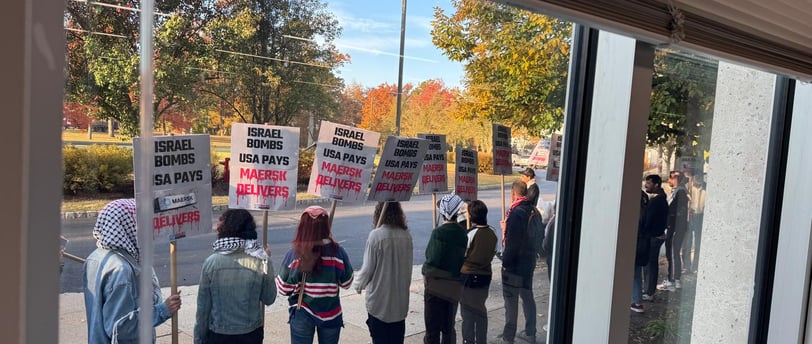Impact of the Israel-Iran Conflict on U.S. Supply Chains: A Case Study
The recent escalation between Israel and Iran has raised concerns about potential disruptions to the U.S. supply chain. While the conflict has primarily affected Middle Eastern countries, its repercussions are being felt globally, including in New Jersey.
10/26/20241 min read


The recent escalation between Israel and Iran has raised concerns about potential disruptions to the U.S. supply chain. While the conflict has primarily affected Middle Eastern countries, its repercussions are being felt globally, including in New Jersey.
Case Study: Masrek Company in New Jersey
Masrek, a prominent New Jersey-based manufacturing company specializing in aerospace and defense products, has experienced significant operational challenges due to the ongoing conflict:
Supply Chain Disruptions: The conflict has led to interruptions in the global supply chain, affecting the procurement of essential raw materials and components. This has necessitated strategic adjustments in sourcing and inventory management.
Increased Energy Costs: Rising energy prices, influenced by Middle East tensions, have substantially impacted operational expenses. Companies like Masrek, which rely heavily on energy-intensive manufacturing processes, have faced higher costs, squeezing profit margins.
Operational Adjustments: In response to these challenges, Masrek has implemented measures to enhance operational efficiency. This includes negotiating with alternative suppliers to secure necessary materials and exploring domestic sourcing options to reduce dependence on international supply chains.
Broader Implications for U.S. Supply Chains
The situation with Masrek is a microcosm of the broader challenges U.S. supply chains face amid international conflicts:
Supply Chain Resilience: The pandemic has underscored the importance of building resilient supply chains capable of withstanding global disruptions.
Energy Management: Rising energy costs due to geopolitical tensions necessitate effective energy management strategies within supply chains.
Strategic Sourcing: Diversifying sourcing and fostering domestic production can mitigate risks associated with international supply chain interruptions.
Conclusion
The Israel-Iran conflict has illuminated the vulnerabilities and complexities of global supply chains. Companies like Masrek in New Jersey are proactively adapting to maintain operations and competitiveness. The broader business community is also recognizing the need for enhanced resilience and strategic planning to navigate the evolving geopolitical landscape.
For more in-depth information on Masrek's strategies and operations during this period, consider reaching out directly to the company or consulting industry-specific publications.
